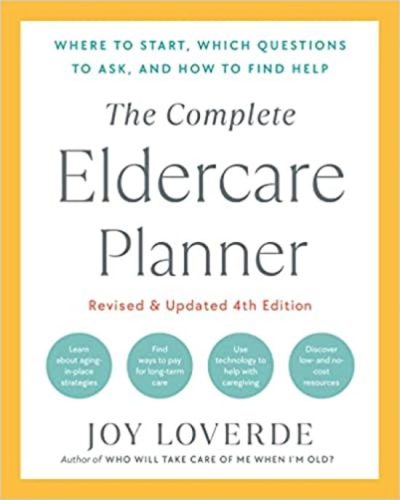Every week, it never fails that I get an email from an angry family member who complains about siblings who do not do their fair share of parent caregiving. They ask for help, yet brothers and sisters flat out refuse to be of assistance and/or ignore requests altogether.
What’s going on?
Truth is family caregiving tasks are rarely distributed equally or fairly among siblings. And the reasons why siblings don’t do their share of eldercare may surprise you. Everyone, including you contributes to the situation.
If you are ready to change things for the better, here are a few suggestions from The Complete Eldercare Planner, 4th Edition.
Start by considering the role your parents play in this scenario. They are NOT innocent bystanders by any means. They may be part of the reason why you are doing all the caregiving work.
Can you relate to any of these circumstances?
- Parent continuously expects you to care for them.
- Parent asks for help from you and you alone.
- Parent views eldercare as “woman’s work” and let sons off the hook.
- Parent plays favorites and you’re it.
Next, consider the mindset of your brothers and sisters. Can you relate to any of the following situations?
- Sibling feels that “Mom always liked you best” and uses it as an excuse to stay away.
- Sibling denies parent-care is needed and chooses to ignore the situation.
- Sibling lives far away.
- Sibling has personal problems and is incapable of being helpful at this time.
- Sibling is getting back at you for any number of reasons.
- Sibling cannot psychologically handle a parent’s decline and death.
Next, look inward and self-assess whether you are part of the problem. This is not easy because you may realize how you approached your siblings in the past has been part of the problem all along.
Take a deep breath and ask yourself the following questions:
- When I speak with my siblings am I asking for help or am I hinting around or complaining?
- Am I secretly reluctant to share my parents’ attention with others?
- Am I out to prove once and for all that I am the good and always-giving favorite child?
- Do I believe that nobody can do the task at hand better than me?
- Am I so tired that I think it takes too much time to explain what is needed and so I do it myself?
- Do I believe that family caregiving is “woman’s work?”
The next step is to brush up on your communication skills with parents and siblings. Read Chapter 4: Communicaring of The Complete Eldercare Planner, 4th Edition.
When you’re ready to have an adult conversation with your siblings, here are a few tips:
Speak up.
Are you assuming your siblings know what’s going on and why you need their help? They may have no idea or understanding of the gravity of a particular situation. Be specific and share details.
Fill the distance gap.
Chances are siblings who live far away don’t know how to help. Be specific. Ask them to: call your parents on a regular basis; do research on options and services; make service arrangements; send money as a way of being helpful; suggest that parents stay with them.
Consult your siblings.
If siblings continuously say, “You do what’s best” do not accept this responsibility alone. The decision-making burden is not entirely yours. Ask for specific involvement on your siblings’ part. Instead of saying, “What should we do?” say, “Do you think we should hire a home care nurse or look into an assisted-living facility?”
There are also plenty more parent/sibling tips in The Complete Eldercare Planner, 4th Edition.



